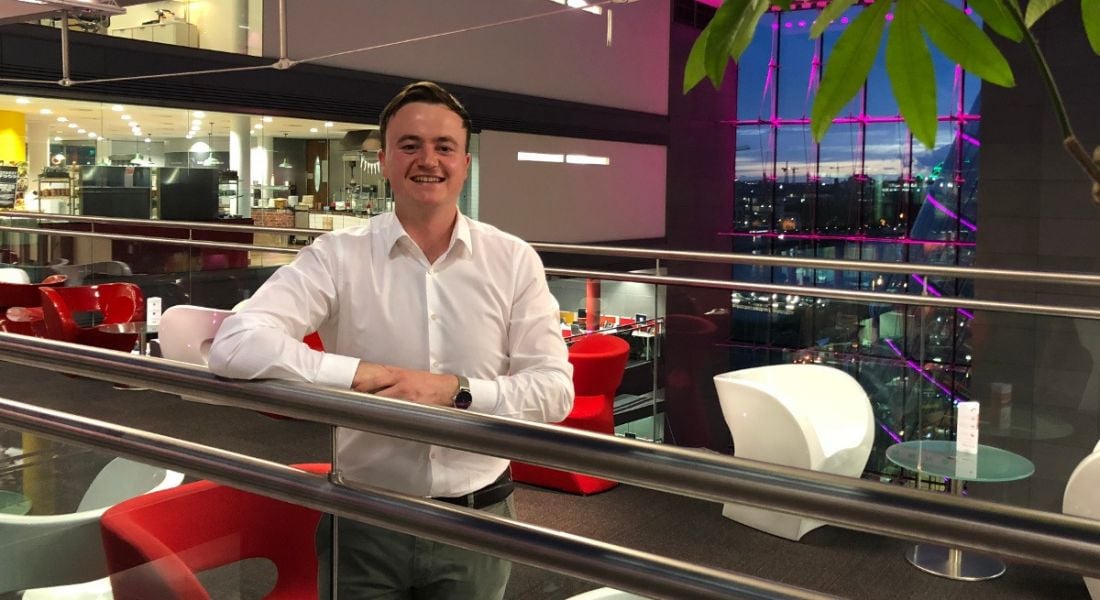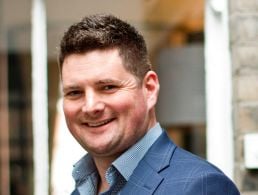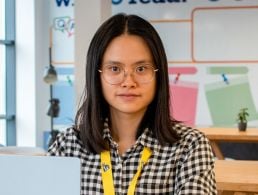The right graduate programme can give you a lot more worldly experience than you might first think.
When you begin your career journey on a graduate programme, you might expect your experience to start off small and limited. However, many firms give you the opportunity to hit the ground running and even travel around the world as part of your work.
Gavin Sheedy is on the graduate programme at PwC. Here, he shares his experience, his travels and how his role is constantly evolving.
What did you study in college?
I completed an undergrad in business, specialising in economics, and a master’s in e-commerce, both in Dublin City University.
With this programme, are you now working in your desired industry?
Yes. The e-commerce master’s really helped me with the consulting interviews – not that it’s a requirement, but the breadth of academic and extracurricular activities I became involved in meant I had lots to talk about during the interview process.
The master’s was particularly helpful during the group exercise stage of the PwC interview process. Many of my assignments were group-based so I was very comfortable in this environment, which definitely helped on the day!
What drew you to PwC when you were seeking work as a graduate?
From early on in my master’s, I became interested in consulting. Like any other course, we had speakers from all the Big Four in, I attended grad fairs, researched online etc. I think what drew me to PwC over the competitors was the personal experience I had throughout the recruitment process.
Prior to joining PwC, I had been invited to various events and evenings with the firm, which gave me a real feel for the place. I received my offer over the phone from my reporting partner, which was a nice touch. This was a very different experience to many of the other firms I had been applying to and was the deciding factor in accepting PwC over other offers.
What expectations did you have before you began the programme?
I think because consulting is so broad, and the people you meet at grad fairs generally struggle to explain what they do on a day-to-day basis, I really didn’t know what to expect. I knew the work was project work, I knew I would be working in technology but I really had no idea what to expect from day to day (I still don’t!).
What duties and responsibilities were you given initially?
Duties change from project to project, but most people tend to start out in a support role – working with a PwC director or manger on a project, supporting on various tasks such as data analysis, research, workshop facilitation etc. This is a good way to learn how projects work and how PwC does things.
Did the scope of your work change as the programme progressed?
Yes, it has completely changed. As you transition from that support role into managing your own deliverables and client relationships, the scope of your role definitely changes. Even from early on in your time in PwC, certain projects will give you an opportunity to expand the scope of your work.
Projects with smaller teams and tight deadlines will give you the opportunity to own work that in normal circumstances would go to someone more senior. I have tried to and would highly recommend seeking out these types of stretch opportunities as early as possible.
Can you describe a typical day in your role?
Again, this really varies project to project. I have been lucky to travel a lot since I joined. I was based in Dubai for 18 months working on a global M&A project. That was a really cool experience; we got to work with more than 30 nationalities on a really big project.
Since then, I spent a week driving up and down highways in the UAE doing primary research in filling stations. I have been to Jordan a couple of times. I did a three-day market visit to Saudi Arabia on behalf of a client – visiting various malls, department stores and even warehouses. That trip also included a traditional Saudi client dinner, where I had to take off my shoes, sit on the floor and, along with four clients, eat lamb’s head and rice with our hands – this was a really cool experience but definitely not something you’ll find in the prospectus!
Since moving back, I have been based in Cork for four months working with a utility and I’m currently working between a couple of cities across Europe on another M&A project for a chocolate company.
How do your responsibilities compare to more experienced employees’?
Generally, in the first couple of years, associates will be responsible for gathering and collating information, be that for a presentation, workshop or a report. Gathering the bulk of that material is often 80pc of the work; more senior employees are generally responsible for iterating through that material to ensure its accuracy and quality.
It’s a model that works well. It allows grads like me the opportunity to take responsibility to shape work while being guided by the experience of someone who has done this before.
Do you feel more prepared for working life after completing this programme?
Yes. The great thing about the graduate programme in PwC is, as much as it’s a three-year track from associate to consultant, it’s a permanent contract. So, you can carry on working here and progress through the grades.
Why should someone apply to the graduate programme at PwC?
It depends what you are after, but for me the main reason I would recommend joining PwC is to gain all the benefits that comes with the diverse experience PwC offers graduates.
Over the three years on the programme, I have been really lucky to work in multiple roles in multiple countries, across multiple sectors with various clients, which has been brilliant for my development.
Most of all, I think PwC is just a fun place to work. Starting with a big group of grads means you’ll make lots of new friends, go to lots of events and progress through the levels together. Many of the people I started with have become some of my best friends.




